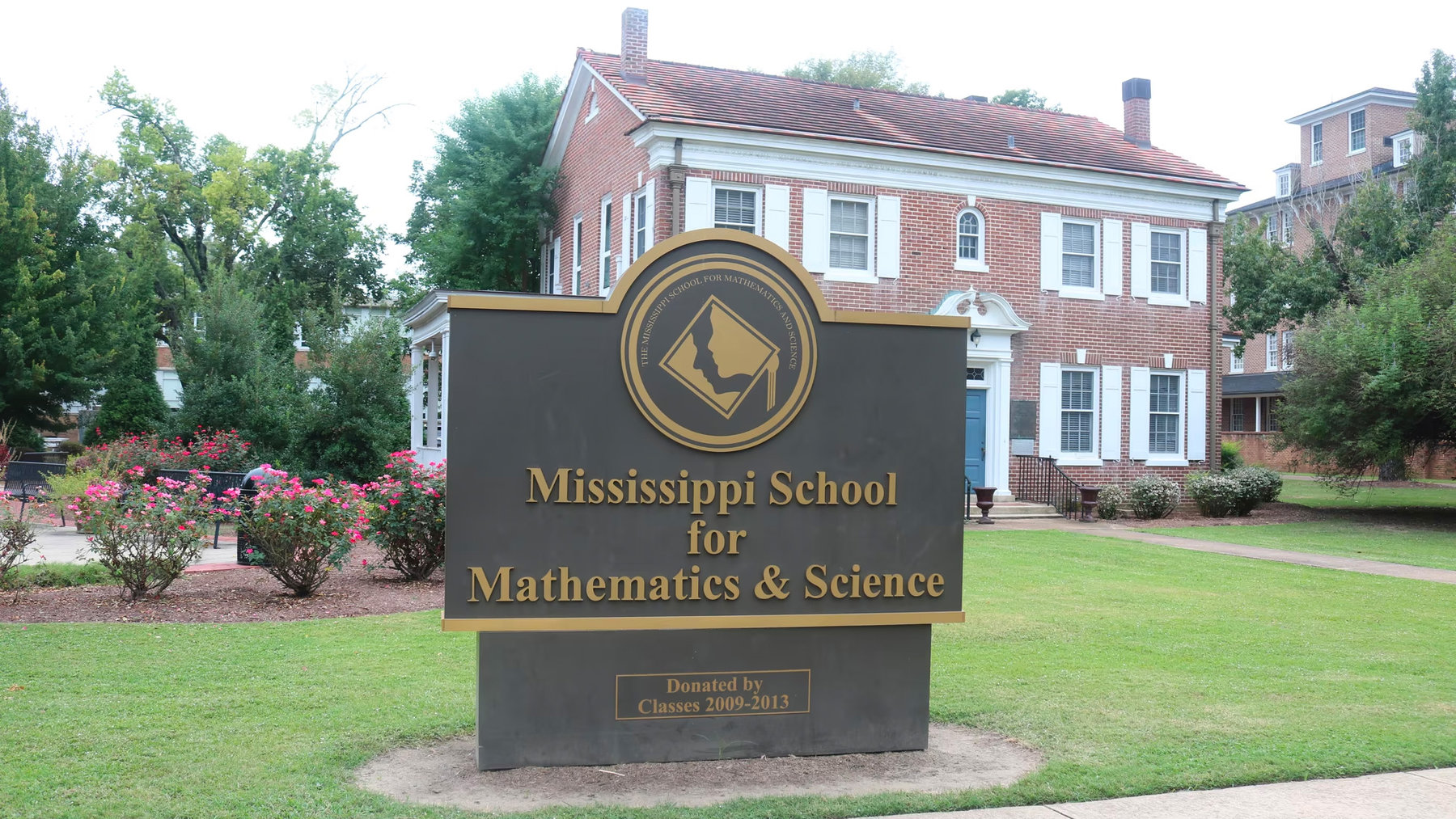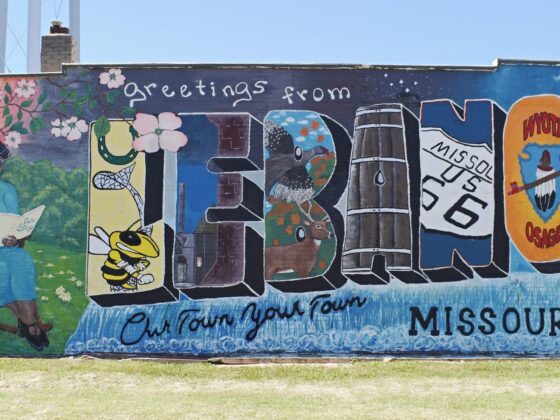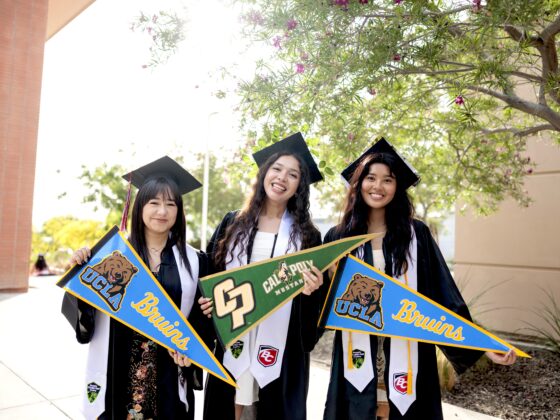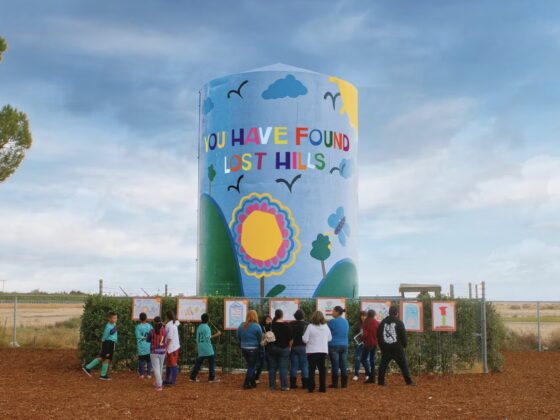The only thing traditional about Thomas Easterling’s 11th-grade English class at the Mississippi School for Mathematics and Science (MSMS) was his short quiz at the start of the class. It was the last of the year, he told his students, and I guessed that this was his way to keep the kids focused on their final assignment. It may also have been a nudge toward the good habit of reading, for a generation of students with Netflix always at their fingertips. They scrambled beyond their laptops for bits of paper to write their answers on and handed them to Easterling, who assembled a messy little stack.
MSMS is a school I first visited more than five years ago, and whose students, teachers, programs, and possibilities I’ve written about many times.
Jim and I have been back again this month, and I wanted to be sure to pay another visit to see Thomas Easterling’s class.
From the looks and names of the 25 students, I guessed they were a composite of East and South Asians, African Americans, whites, and Hispanics. Students at MSMS, a two-year public residential school on the campus of the Mississippi University for Women (fondly called The W), arrived there from all over the state. They came from the Delta or towns on the Gulf, from shacks and double-wides or fancy homes around bigger cities like Oxford and Hattiesburg. Two years later, they left their dorms in Columbus, once a Civil War hospital town with housing stock still rich with gracious, pillared antebellum homes, an architecturally beautiful downtown, and large stretches of run-down, low-income areas. (Median household income in the city is around $35,000, versus around $63,000 for the country as a whole.) MSMS students, from their wide variety of backgrounds, are headed for the Ivies, Ole Miss, Mississippi State, Harvey Mudd, name your school. Easterling already referred to his class as seniors, and they seemed to comfortably assume that role.
Sitting with the students, I found it hard to make a connection between the human and intellectual energy in their classroom and the “conversations” about education served up in public life. Life in this Mississippi classroom was happening far, far away from policy statements from the Department of Education, or editorials on charter schools, or debates about the burdens of required testing, or calculations of where American students place in international rankings.
In Easterling’s class, I was witnessing the realization of a mission statement to teach children how to think. How? With deft, nimble teaching.
On this day, the class had been reading Larry Brown’s Dirty Work, a book Easterling chose in part because he favored books not covered by SparkNotes and partly because they had worked together when Easterling was an editor at theOxford American. (Brown was a renowned firefighter turned novelist who first earned acclaim with Dirty Work, which came out in 1989, and wrote a number of other successful books before his death of a heart attack, in 2004, at age 53.) Plus, I thought, what teacher in Mississippi could resist introducing his students to Mississippi writers? Dirty Work is a novel about Vietnam veterans; it is heavily layered, full of imponderables of the meaning of life, unresolvable questions, and gray areas, with mature themes and unfiltered language.
Easterling moved on from the factual questions on the quiz (What does Braden ask Walter to do? What does Jesus say he wants, in a dream?) and plunged into issues that were complex, to say the least. The students started off a bit slowly, but soon wound up into a crescendo of comments, arguments, small-group debates, and references.
One girl described a main character: “He was a drinker, a smoker, and he uses foul language. He’s not ‘Thou art.'” Others made informed references to the civil-rights movement, the Civil War, the Old Testament. They debated the terms of justice, the boundaries of violence, the value of diplomacy. The South Asian girl started a riff on Gandhi, to which the whole class murmured in a tone reminiscent of the burbling British Parliament. They had clearly heard her message before.
The students were seated at tables arranged in a square, and Easterling roamed within its inner courtyard. He would read some passages like a storyteller, and if you closed your eyes you could hear Garrison Keillor, with a southern accent. He framed his class with permission and trust. An occasional student got up and left the room, presumably to go to the restroom, and returned. They were all working on their laptops. He told me later that he assumed that a number of them were clicking away on sites completely irrelevant to the class—but he called on them and engaged them frequently enough that they couldn’t let their attention drift for long. He asked the kids to return their books when they were finished, to lighten his end-of-year processing load, but assured them it was okay if they needed to keep them until the bitter end. He assumed his students knew his references, but made cultural checks from time to time. “What’s a candy striper?” he inquired. “Just checking—you never know … ” when they virtually rolled their eyes. He talked about certain movies from way before their time—including one even before my time (or his), The Young Lions, with Marlon Brando—and then suggested they might want to use some of their summertime to watch them.
He never said their interpretations were wrong per se, but demurred to let them down gently: “I dunno; maybe or maybe not that.” Or if no one could come up with a comment, he would encourage, “Read closely. You’ll see. You’ll see.” A bit later, I heard a few soon comment, “Oh, I got it!” And it was easy to tell that Easterling knew which students could take a little ribbing and which needed to be drawn out.
The walls of the classroom were surprisingly spare; just four posters with themes of Respect, Truth, Reading, and Trust. And a fifth of Joan Miró.
Many of the people we met at community colleges around the country, from California to Oregon to Mississippi, would talk to us about their students getting a second chance at their lives. In Mississippi, these young students were getting a first chance.




